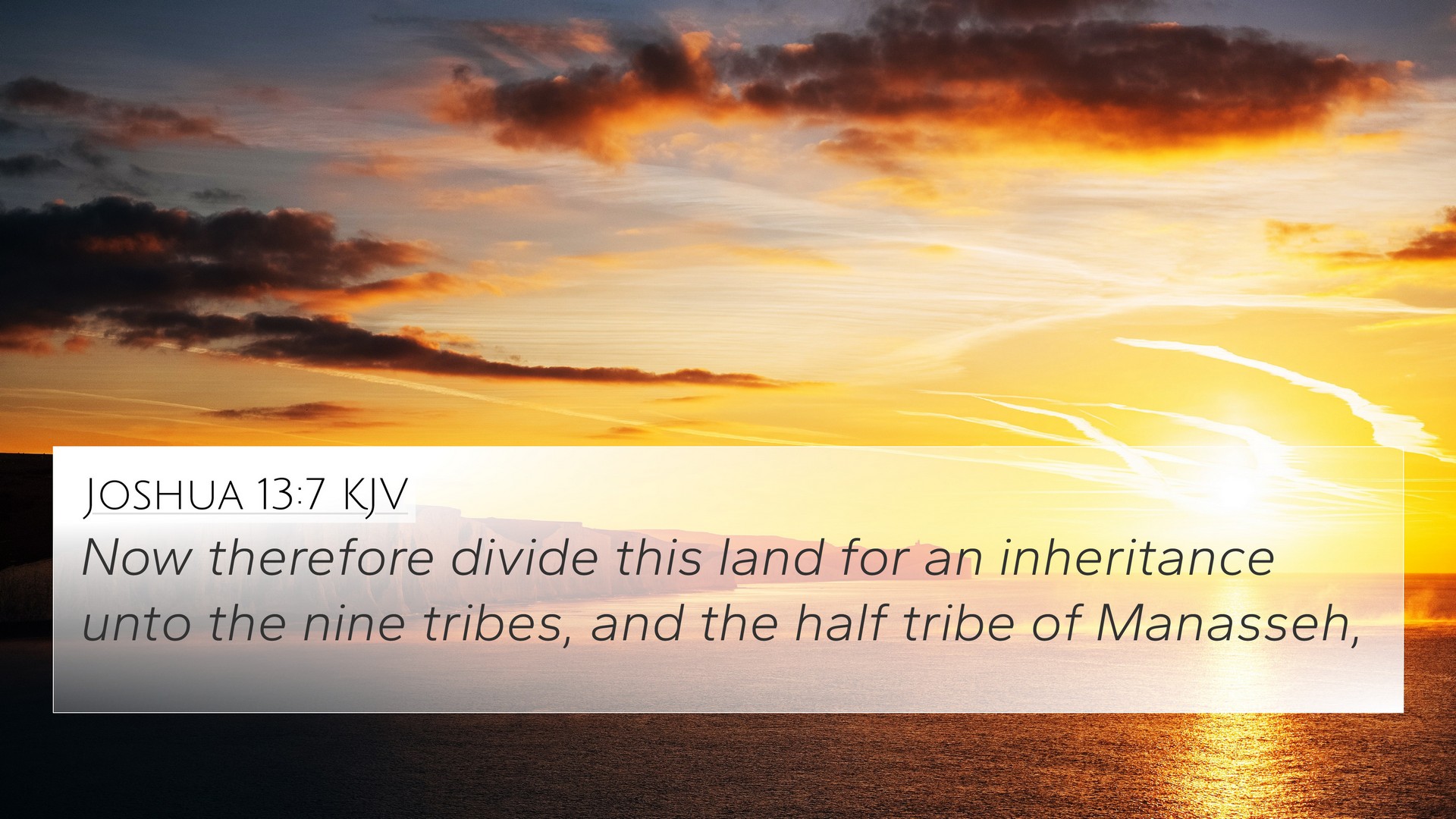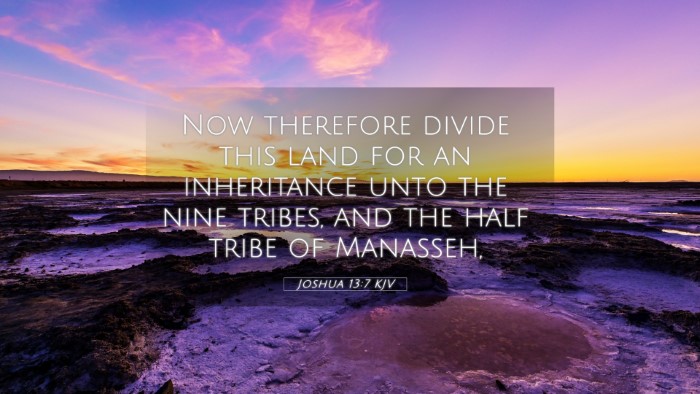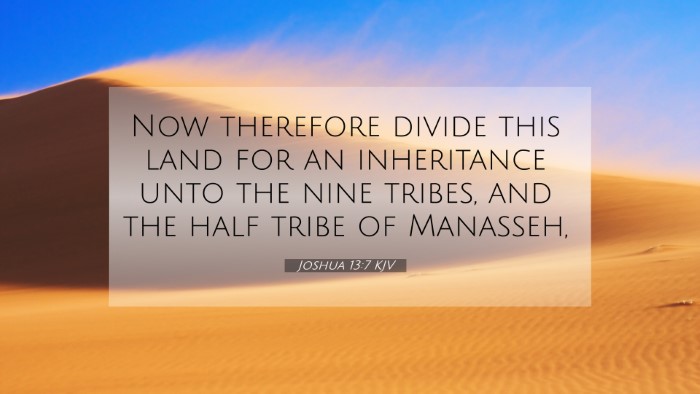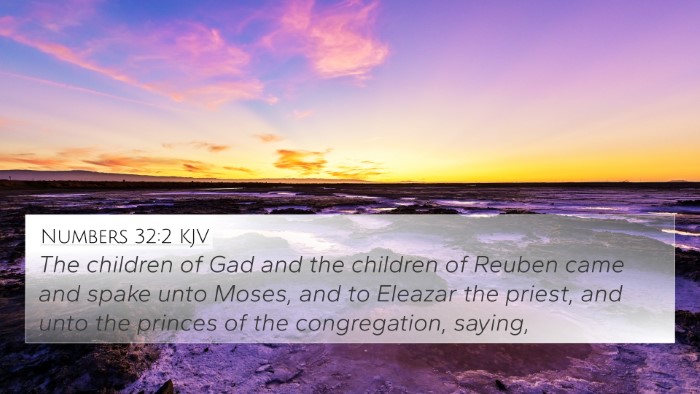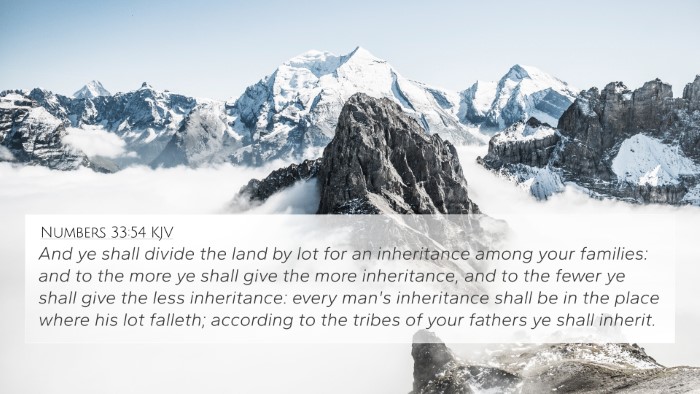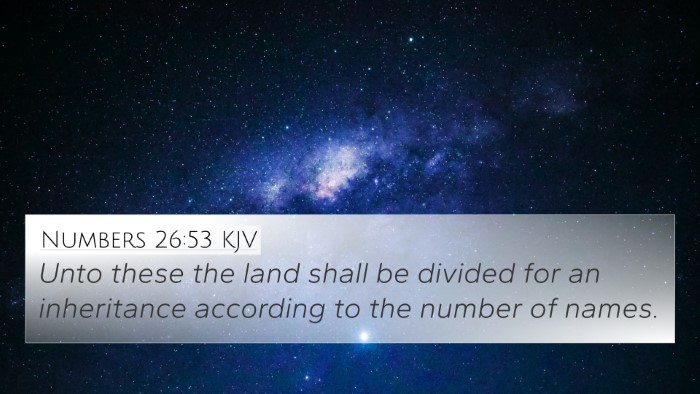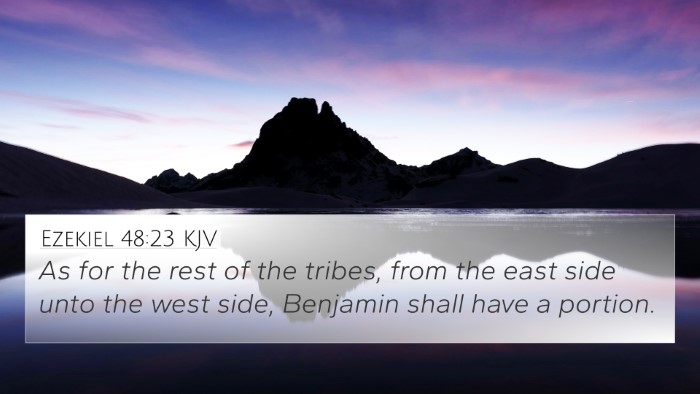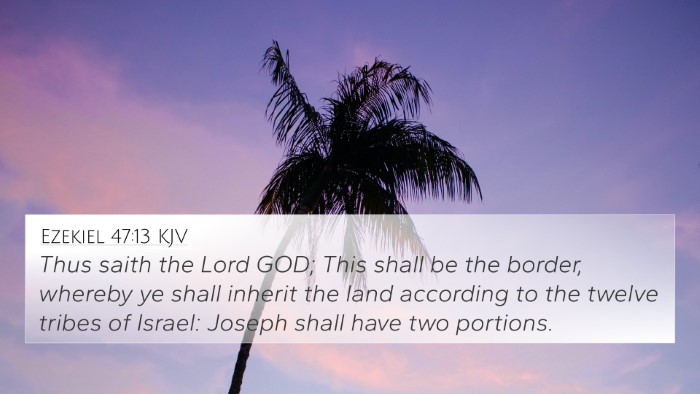Understanding Joshua 13:7
Verse: “Now therefore divide this land for an inheritance unto the nine tribes, and the half tribe of Manasseh,” - Joshua 13:7
Summary and Interpretation
This verse occurs in the context of the division of the Promised Land among the children of Israel, specifically addressing the assignment of territories to the tribes that had not yet received their inheritance. It highlights the importance of each tribe's allotted portion as part of God's promise to His people.
Commentary Insights
- Matthew Henry: Henry emphasizes the divine sovereignty in the distribution of land that is seen throughout the allocation. The inheritance is not merely land, but a token of God's promise and presence among His people. The division emphasizes the importance of God’s guidance in the inheritance of the land.
- Albert Barnes: Barnes notes the significance of the nine tribes and the half tribe of Manasseh in the conquest narrative. He connects this verse to the previous mentions of land divisions and points out that every tribe has a place in God’s plan, reinforcing the theme of unity and purpose among the tribes.
- Adam Clarke: Clarke provides a historical overview regarding the geographical and cultural implications of the land divisions. He notes that the selections made during this division reflect not just physical boundaries but also theological truths about God’s promises and their fulfillment.
Thematic Connections
The thematic overtones of Joshua 13:7 include:
- Promise of Inheritance: The land is more than physical territory; it symbolizes God’s faithfulness to His covenant with Israel.
- Unity Among Tribes: Although the tribes are distinct, they are collectively part of God’s nation, working under His instructions to fulfill His will.
- Divine Order: The systematic division showcases God's order and planning in what could have been a chaotic process, reflecting His omniscience.
Cross-References
This verse can be cross-referenced with various other Biblical texts that elaborate on similar themes:
- Deuteronomy 3:12-13: Discusses the allocation of land to the tribes of Reuben, Gad, and Manasseh.
- Numbers 34:2: God's command regarding the boundaries of the land promised to Israel.
- Joshua 14:1-2: Details the method of inheritance and the leadership involved.
- 1 Chronicles 5:16: References the dwellings of the tribes beyond the Jordan which relates to this division.
- Joshua 1:14: God's command to Joshua about the division and inheritance allocation.
- Hebrews 11:8-10: Points out the faith of Abraham, who looked forward to the promised land, indicating a spiritual inheritance that this physical land division foreshadows.
- Matthew 5:5: The Beatitudes affirm blessedness to the meek, paralleling the promise of inheritance, tying the concept into New Testament theology.
Conclusion
Joshua 13:7 serves as a pivotal verse in understanding the transition of the Israelites from wanderers to inheritors of land. This verse, along with its cross-references, portrays a deep connection between God and His people, emphasizing themes of inheritance, unity, and the divine orchestration of history. It also encourages believers today to reflect upon their own inheritances in God’s kingdom and the faithfulness that His promises entail.
Exploring Bible Cross-References
Exploring cross-references like those illustrated through Joshua 13:7 can provide deeper insights into the Scriptural narratives and reveal connections between verses that contribute to a more comprehensive understanding of Biblical themes. Engaging with such connections not only enriches one’s study of scripture but also opens up avenues for applying Biblical principles in today's context.
Tools for Further Study
For those wanting to delve deeper, consider using:
- Bible Concordance: A useful resource for locating specific verses quickly and understanding their contexts.
- Bible Cross-Reference Guide: An effective tool for finding related verses across the scriptures.
- Cross-Reference Bible Study Techniques: Techniques for systematically exploring connections between scripture passages and enhancing theological studies.
